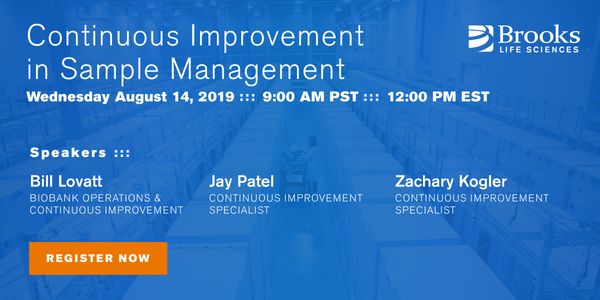Cancer Molecular Biology
Molecular biology plays an important role in the diagnosis and treatment of cancer. On a biological level, the development of cancer is characterized by the acquisition of genetic mutations which cause abnormal cell growth, eventually resulting in malignant disease. Understanding how molecular damage can cause these cancer-driving mutations can help design optimal treatment regimens
-
SEP 12, 2019 | 8:00 AMDATE: September 12, 2019TIME: 8:00am PDTIn the upcoming era of personalized medicine, there is a growing need for the development of rapid, sensitive, precise and accurate analysis of t...Background: The vast majority of all genes are contained within the genomes of the prokaryotes, including the eubacteria and the archaea. These largely single-cellular domains of life thus...Speaker: Garth Ehrlich, PhD, FAAAS
SEP 10, 2019 | 9:00 AM
DATE: September 10, 2019TIME: 9:00am PDTAfter new users become familiar with flow cytometry instrumentation and learn how to set up the instrument and acquire data, the next topic to ma...
SEP 05, 2019 | 7:00 AM
DATE: September 5, 2019TIME: 7:00am PT, 10:00am ET, 4:00pm CEST PCR (Polymerase Chain Reaction) has gone through a massive evolution since its development in 1983. Besides it...
AUG 27, 2019 | 9:00 AM
DATE: August 27, 2019 TIME: 9:00am PDT, 12:00pm EDT Immunotherapies targeting PD-1 or PD-L1 have proven remarkably effective for treating cancer in some patients, with considerabl...
DNA profiling tools to teach undergraduate students about forensics generally utilize the PV92 Alu and D1S80 VNTR markers, but are both limited in scope. In contrast, advanced profiling syste...
AUG 14, 2019 | 9:00 AM
DATE: August 14, 2019TIME: 9:00am PT. 12:00pm ET Implementation of Lean Methodology in Biobanking Operations to standardize sample management processes is effective. Each proce...
AUG 14, 2019 | 8:00 AM
DATE: August 14, 2019TIME: 8:00am PDT Infectious disease surveillance and monitoring is critical in settings where disease outbreaks and antibiotic resistance can dramatically im...
JUL 23, 2019 | 10:00 AM
DATE: July 23, 2019TIME: 10:00am PDTThe tumor microenvironment is a complex network of different cell types and states that imparts distinct properties to the tumor and plays a signif...
Speaker:
Doug Hinerfeld, PhD
, Chris Merritt, PhD
, Anushka Dikshit, PhD
Sponsored By: Advanced Cell Diagnostics
JUN 26, 2019 | 9:00 AM
DATE: June 26, 2019TIME: 9:00am PDT, 12:00pm EDT An excessive number of software solutions are available to help manage your clinical, biobank, or biorepository sample inform...
Tumor heterogeneity is a hallmark of cancer and can have significant impact on identifying drivers, including those that may be therapeutically relevant. Although, the traditional sequencing...
Implementing precision genomic medicine in the pediatric acute care setting has several challenges. First, the diagnosis must be made quickly. Second, the determination of pathogenicity mus...
The practice of precision medicine utilizes advanced diagnostic tools to identify specific groups of patients on the basis of particular molecular characteristics, and guide their treatment w...
Speaker:
David Hout, PhD
, Benjamin Chaffey, PhD
The long term goal of our collaborative effort is to bring precision medicine to the practice of veterinary oncology, using the wealth of genomic data gathered in human cancers as a roadmap....
Speaker:
Duane Hassane, PhD
, Guannan Wang, PhD
Clopidogrel, an antiplatelet agent frequently used for secondary stroke prevention, is a prodrug that requires both sufficient intestinal absorption and hepatic modification to produce its ac...
This talk will review successful efforts at Washington University to employ novel reagents and informatics to the problem of rare allele detection. I will discuss a published bakeoff of in si...
























